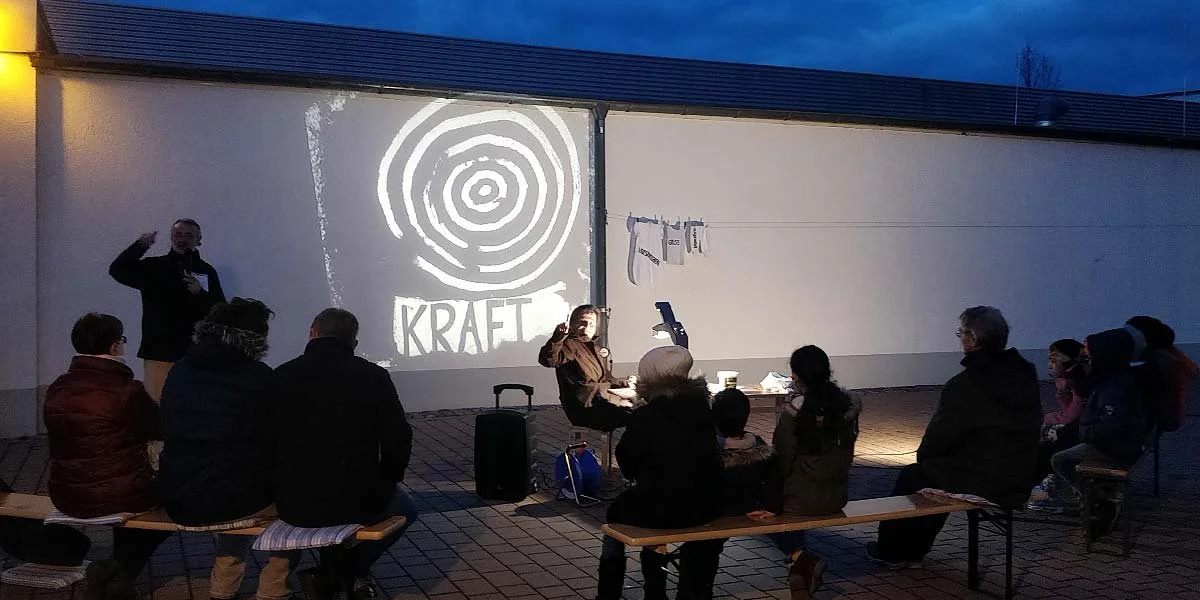“Each apartment block has its own community, its own dynamics, its own culture,” Ute Paul said as she walked among the Plattenbau — formidable apartments built of prefabricated concrete slabs — in Gotha West, a working-class suburb of the central German city, Gotha.
Originally constructed as a planned housing development (Neubaugebiet) during the waning years of the socialist East German Republic, the district is now home to migrants who have made their way from Ukraine and Eritrea, Afghanistan and Romania, Nigeria and Syria. Many of them are relocated to places like Gotha West, where they often end up grouped with their fellow countrymen and forming cliques based on shared language, religion, or background.
On Coburger Place, a centrally located square with shops and a small casino that serves as the neighborhood’s main hangout spot, there is a small storefront with the words, “from dark to light” written across its windows.
The shop is the principle gathering place for the Mustard Seed District Mission (senfkorn.STADTteil Mission). Since 2015, pastor Michael Weinmann and his wife Christiane have been leading Mustard Seed and “experimenting with new forms of community in Gotha-West,” said Paul, who joined the pair along with her husband, Frank, in 2021.
Focusing less on events and more on “relationships, ‘accidental’ encounters, and natural life in the district,” Paul said the mission has little to show in terms of deliverables or church attendance.
Instead, reflecting the challenges and opportunities of migrant mission in Europe, Paul said Mustard Seed has been able to “create a vibrant network of relationships between people of different backgrounds and origins from across the world.”
Along the way, Paul said the Mustard Seed team has had to unlearn a lot of what they thought they knew about mission and adapt to the everyday realities of those God has given them to serve.
Since the unprecedented migratory movements that shook Europe in 2015 and 2016, an increasing number of Christian organizations have had to reshape their institutions and rethink the identity of Christianity from below.
Mustard Seed is just one example of how the movement of asylum seekers, economic migrants, and internally displaced persons has created new commissions and institutions to meet changing facts on the ground across the continent.
Migration to Europe is not a recent phenomenon. But since 2013, some 17.2 million migrants from outside the European Union (EU) have come to Europe, finding their way to places like Germany and Spain, the UK and Italy. As they arrived, they have sparked public discourse around European culture, values, and religious identity.
Amid the debate, churches have played key roles in the process of integration. Beyond offering religious hospitality, a 2018 study from the Churches’ Commission for Migrants in Europe (CCME) found how congregations provide “symbolic resources for positive self-identification and opportunities for interaction with others as well as crucial services.”
The result has been a transformation of the churches themselves.
